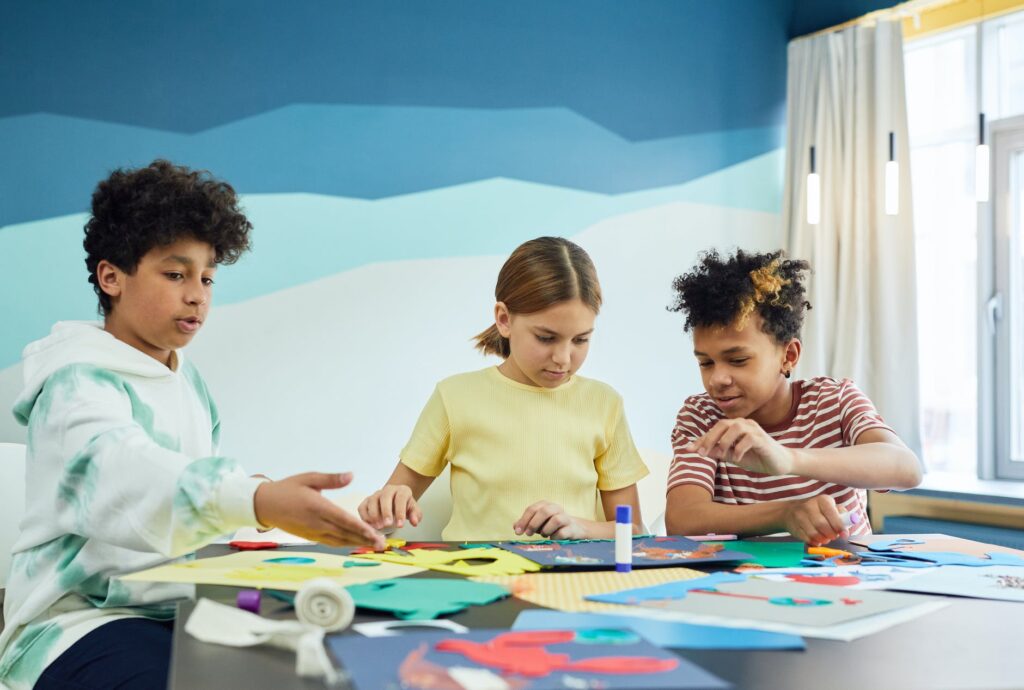Here are 10 fun summer vacation math activities for your elementary student to do to continue building their math skills and confidence.
Just because school is out for the summer, it doesn’t mean kids have to take a break from learning.
Keep math fresh on their mind by doing one or more of the following activities over the summer.
- 1. Games are Great for Summer Vacation Math Activities
- 2. Watch Math Youtube Videos
- 3. Take Fun Math Classes Online Over the Summer
- 4. Attend 1 on 1 Summer Vacation Math Tutoring Sessions
- 5. Math Websites are Great for Summer Vacation Math Activities
- 6. K-5 Math Workbook Activities to Work on During Summer Vacation
- 7. Math Puzzles
- 8. Practice Math Facts
- 9. Read Math Stories and Books
- 10. Explore with Math Manipulatives this Summer Vacation
Some of the links below may be affiliate links. At no extra cost to you, I may earn a commission based on purchases made through the links.
1. Games are Great for Summer Vacation Math Activities
There is such a wide variety of games these days that can be used to practice math skills and keep students engaged both in school and out of school. For the sake of this list, the games that I mention will be non computer based games.
Card Games
Use a deck of cards you have lying around the house, or that you can buy for $1 at the Dollar Tree to help practice different math skills this summer.
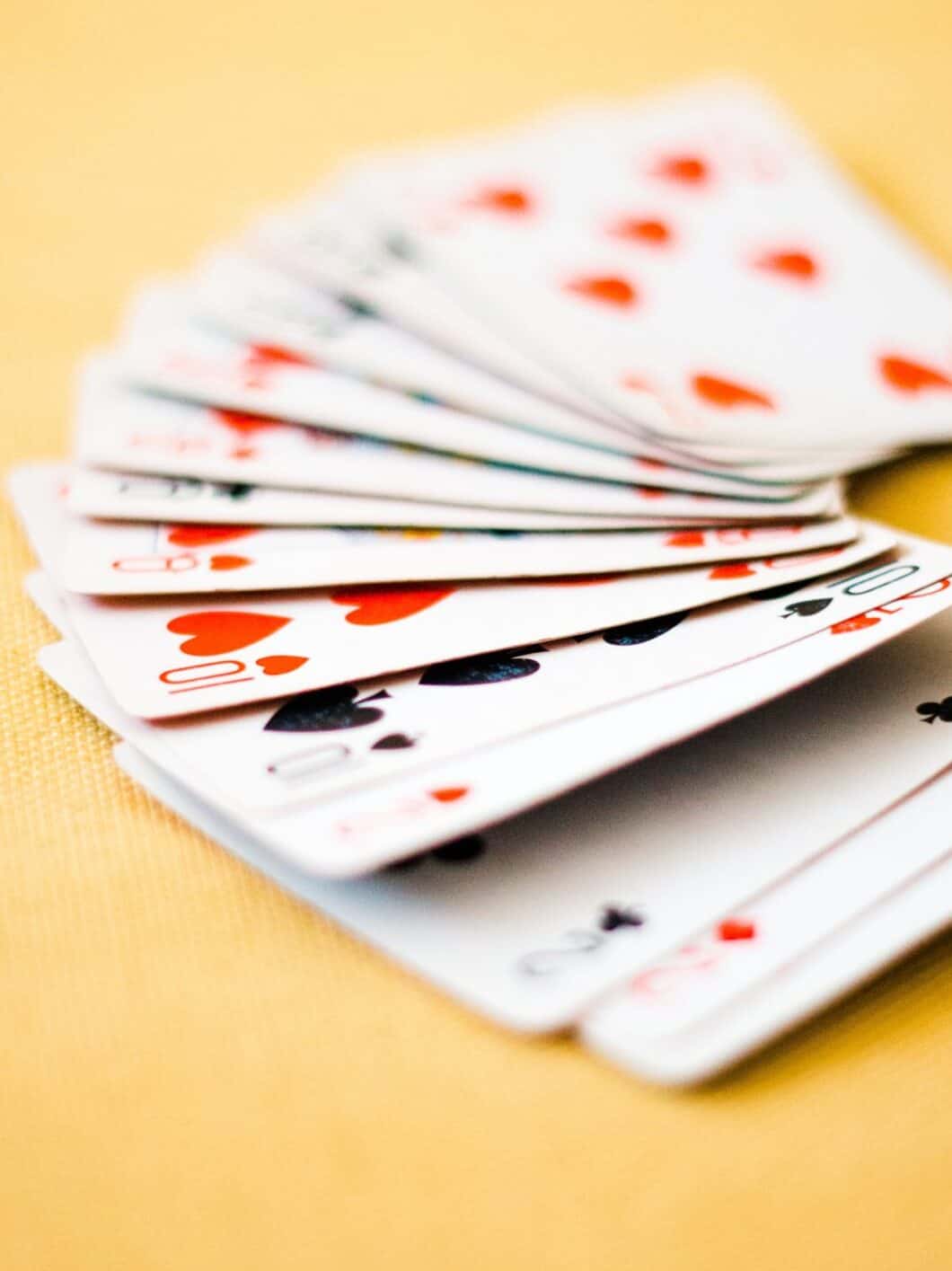
Cards can be used to practice math skills in every elementary grade. From counting and subitizing in Kindergarten, to multiplying large numbers in grade 5, one deck of cards can lead to so many uses!
Check out this blog article from WeAreTeachers.com that shares 20+ math card games that you can use with your learners today.
28 Math Card Games that Turn Students into Aces
Board Games
Go old school and play board games like Scrabble or Monopoly to practice math skills naturally to count points, movements, or amounts of money each time you or your learner passes GO and collects $200.
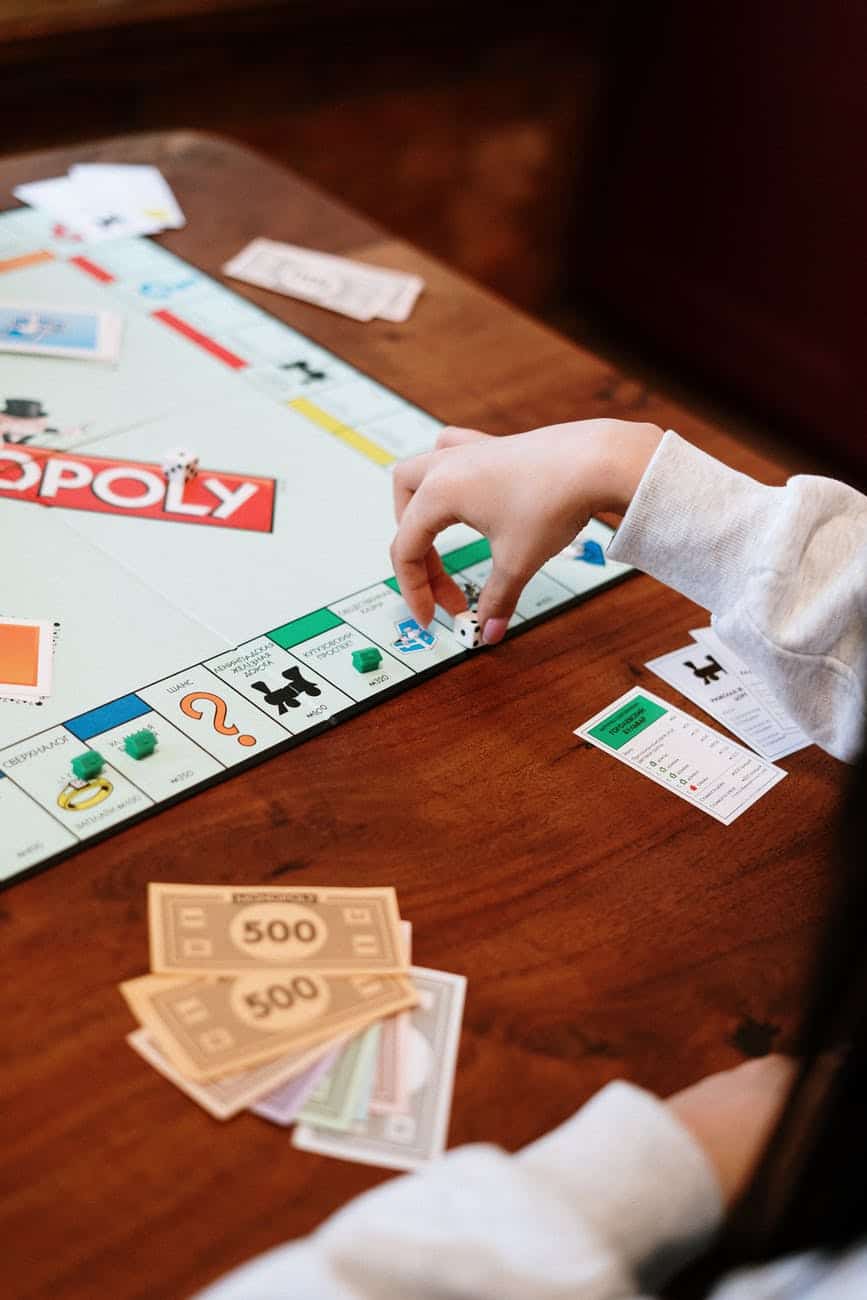
Or find a new board game to practice specific math skills such as addition, subtraction, multiplication, division, or fractions, like the games Target, Sum Swamp, or Fraction City.
You can find a great amount of fun new math themed games on my amazon page here.
2. Watch Math Youtube Videos
Songs, raps, how to videos, and more
Keep math learning fun and interactive by watching videos. A lot of songs and chants can be learned to remember certain concepts. Songs can also support learning about and identifying different patterns.
Does your learner need more help with a skill? Look it up on youtube. You’ll more than likely find a video related to the skill you’re searching for.
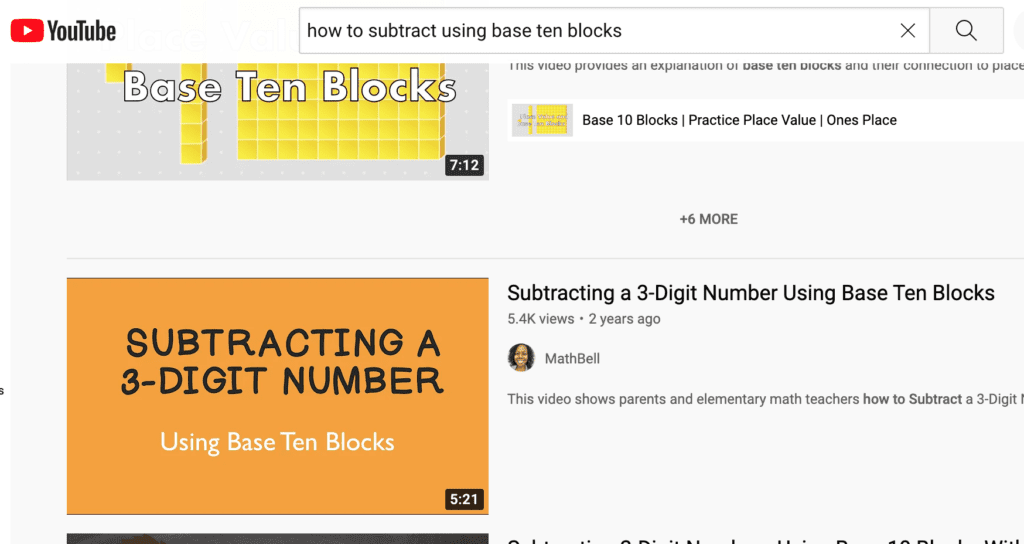
Even if your young learner already knows the skill, give them more time to practice it and get better. Look for different ways that they can solve certain problems or identify some common mistakes.
Check out some of these great Youtube Channels for more learning in math:
Jack Hartmann Kids Music Channel
3. Take Fun Math Classes Online Over the Summer
Have fun and get extra support with online classes on marketplaces like Outschool offers. There are live classes and pre recorded classes. Some are one time classes and some last for one or more weeks.

There are so many options. Help your learner get a better understanding of a skill that maybe was not picked up on during the school year. Or take a fun class with something that connects to an interest of theirs like relating math to basketball or video games.
Find a fun math Outschool class for your learner here.
4. Attend 1 on 1 Summer Vacation Math Tutoring Sessions
Get the personalized and guided support your learner needs
I think all kids should have a tutor.
That could be a parent, sibling, or a hired professional. This is to give one on one guidance to help meet their needs in math beyond the whole group setting of the classroom.
Tutoring makes learning more personalized. It allows for more just in time support rather than just in case. Errors and misconceptions can be addressed right away rather than when students work alone.

In addition to during the school year, summer is a great time to work with a tutor to get help with specific math skills at the pace that works for them.
Find a math tutor in your local area or choose an online tutoring company that fits the needs of your learner.
Try out Remind Tutoring, Varsity Tutors, or Teachers1on1.
5. Math Websites are Great for Summer Vacation Math Activities
Another way to give your learners an opportunity to practice more math skills over the summer is to try out a few math websites.
Specifically the websites that provide multiple practice problems in a variety of concepts and give instant feedback.
If they are working with a parent, teacher, or tutor nearby, the feedback is usually given by that adult.
If they are working independently, one of these websites will be very beneficial.
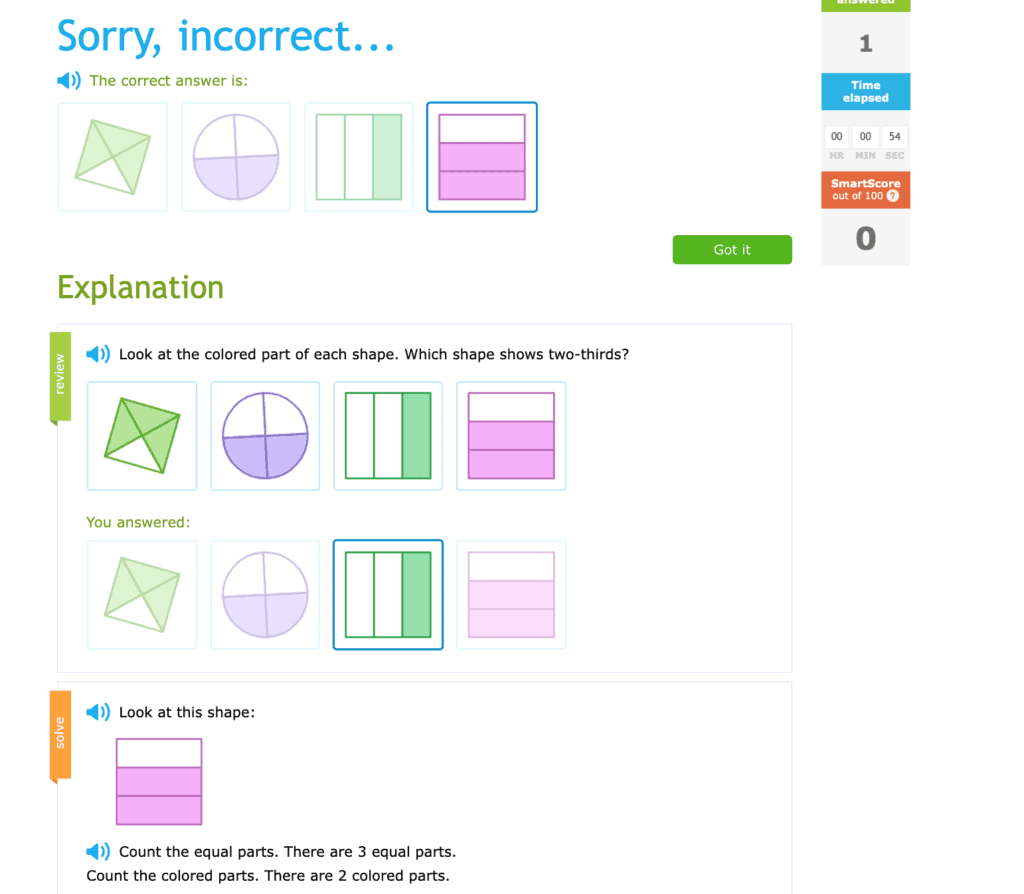
Instant feedback is helpful in the fact that it prevents students from solving a type of math problem incorrectly over and over again. If a student makes an error in the process of solving a problem once or twice, that is okay.
If they continue to make that same error without any feedback that provides a correction, it will be more difficult to fix the way they solved the problem incorrectly later on.
A few of the websites even show a quick guide to understanding the skill for those who get it wrong and need a bit more help.
Some of them cost a fee, some have free trials for a certain amount of time, and some are free.
3 Websites to Practice Math Skills Over Summer Vacation
Khan Academy is a free program that offers a video and skill practice for just about every math concept there is.
You can search through the skills and have your learner work through problems aligned with that skill.
If you sign up for the program (free) their work will be saved and they will have a more personalized experience as they work through each skill.
IXL offers personalized learning for learners in multiple subjects. They offer paid programs for families, classrooms, and schools.
Learners can work through a few problems within a specific skill, get a score, and get instant feedback on whether their answers are right or wrong.
When they get an answer wrong, the feedback provided breaks down how to solve that type of problem correctly.
Common Core Sheets is another free website full of math problems based on grade level or standards. They offer printable worksheets or problems for distance learning.
Something even more special is that they also have a page for most of the skills where you can show a problem ‘One at a Time’.
This is where your learners can get that instant feedback. After they submit their answer, they are able to see if they got it right or wrong and then adjust their answer if necessary.
6. K-5 Math Workbook Activities to Work on During Summer Vacation
This option is for those who want their learners to be away from the computer for chunks of time, or completely, and whose learners like to write on paper.
Its still a good choice for those who like the mix of printables and digital material.
Workbooks are another great option for continuing the learning experience in math over summer vacation.
Similar to the different math websites, math workbooks offer different worksheets of problems that cover a variety of skills based on grade level or topic.
However, they typically cover a topic for only one or two pages.
So if your learner needs more support with a specific skill, it would be better to choose a workbook focused on a skill such as addition, fractions, or geometry, rather than cover the entire grade level.
You can find them at physical stores like Barnes and Nobles, Walmart, or even Dollar Tree.
Or they can be purchased from publishing companies through company websites like Scholastic, Carson Dellosa Education or find them on Amazon.

You can get even more specific learning workbook materials created by teachers and educators by searching on marketplaces such as Teachers Pay Teachers, Etsy, and other teacher blogs and websites.
Whatever you choose, remember to go back through and check your child’s work and answers.
With workbooks, students don’t get instant feedback when working independently, unlike with online programs, so errors may occur without them realizing it.
7. Math Puzzles
Solving logic puzzles can be one of the most fun summer vacation math activities
Another fun summer vacation math activity is playing logic puzzles! These can be physical or paper based.
I love solving a sudoku puzzle every now and then. They are great for kids too!
Sudoku is a puzzle made up of a grid that needs to be filled with a digit (0-9) in each row and each column. Digits cannot be repeated in any row or column.
Sudoku puzzles come in levels of easy, medium, or hard and can include small or large grids.

Bring Sudoku to life with this physical version that combines sudoku with the idea of a rubik’s cube and uses colors instead of numbers, where the colors cannot be repeated in any row or column.

That and other logic puzzles make learners think and reason about their choices. They can’t just put an answer and move on. All, or most of their answers connect and affect other answers or steps.
Try out a few fun math logic puzzles with your learners today on mathmashup.com.
7 Super Fun Math Logic Puzzles for Kids
These are the types of tasks that when struggling or slightly stuck, a learner may get frustrated or grunt a little.
But it’s that fun frustration of knowing that you’re so close to completing the puzzle.
And then when it’s finally completed, you have that ultimate feeling of accomplishing something great!
8. Practice Math Facts
Practice for fluency and automaticity when appropriate
A great time to solidify those math facts learned the previous year is during the summer. But in a really fun way!
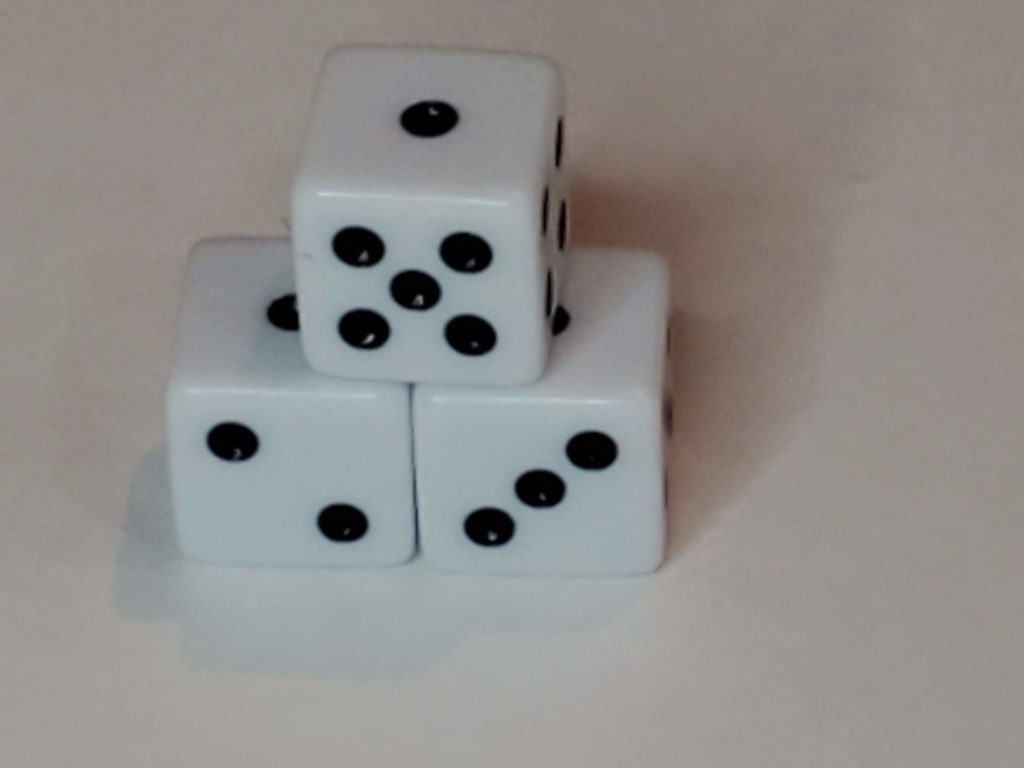
Don’t let it be a boring experience for kids, or just do what we call “kill and drill” with time tests. If your learner likes timed tests then great. But research has shown that most students don’t like it and it causes them to get anxious.
Practice addition or multiplication facts in fun ways like with dice, movement, skip counting in the car, or get art involved!
Try a few of the examples from the articles below with your learner.
Fluency Without Fear: Research Evidence on the Best Ways to Learn Math Facts
20 Fun and Engaging Ways to Practice Math Facts
9. Read Math Stories and Books
Mix the love of reading with the world of math
If a student loves math it doesn’t mean that they have to dislike or not be as good at reading.
And vice versa. Let’s mix the two together.

Get students more interested in different math concepts through books.
Just like the math videos, help students find patterns through counting books.
Learn about others’ struggles and accomplishments in math through books. Think about how math is related to real world situations through books.
Read them online on a website like Epic Books or purchase them at a bookstore or on Amazon.
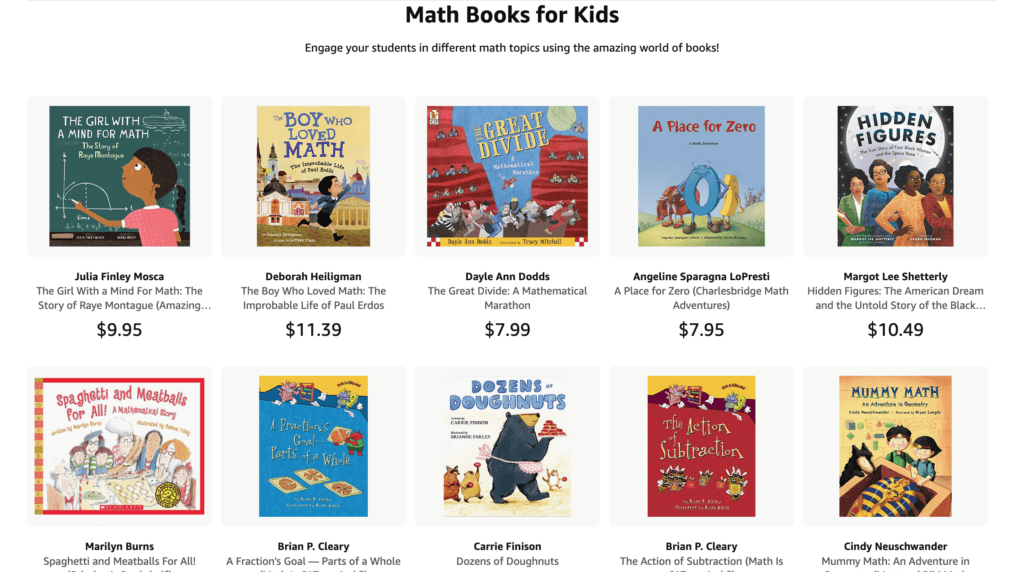
And never forget that most have access to a local library where you can expose students to the entire world, all through a book.
10. Explore with Math Manipulatives this Summer Vacation
Create and explore with math manipulatives; Ask questions and discover new patterns
Math manipulatives are great!
That’s all 🙂
Just kidding.
In school, many learners like to play with math manipulatives as if they were toys. They’re usually led away from these actions because of a lack of time for exploration.
In the summer, let them play with the manipulatives!
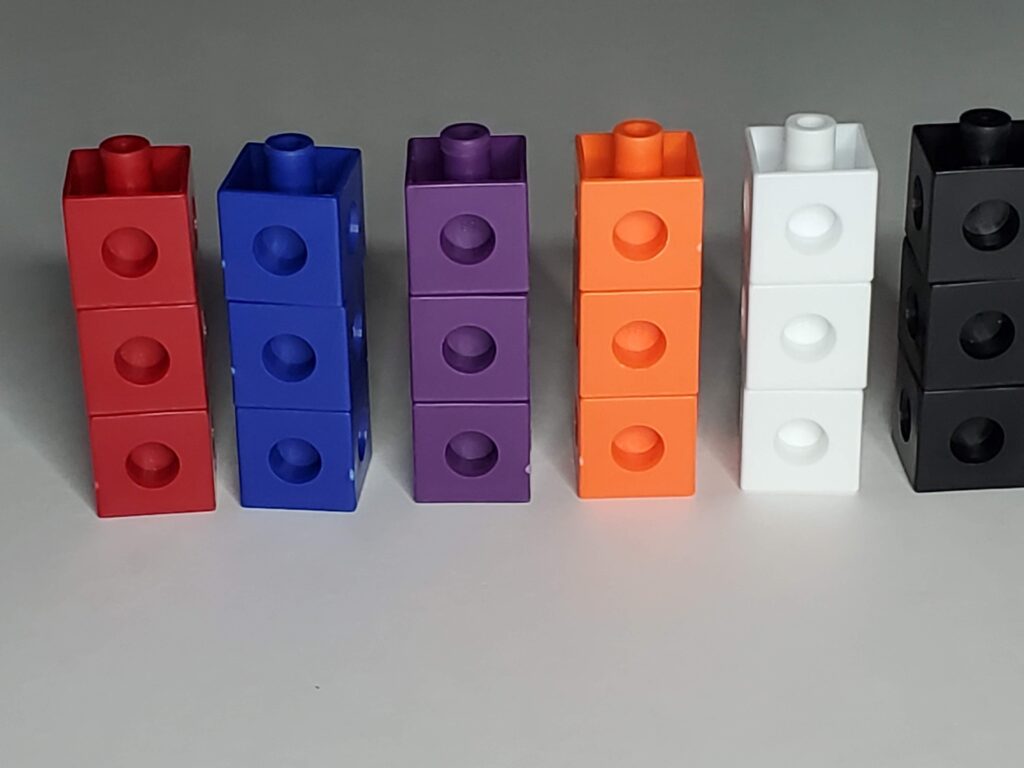
Let them explore and use their imaginations to build things. Let them find connections and more patterns as they work with the different tools. You can still connect it back to a math concept, skill, or specific standard.
Watch their imagination grow as they use math manipulatives like pattern blocks, cuisenaire rods, base ten blocks, anglegs, tangrams, color tiles, or connecting cubes to build buildings, houses, or create beautiful art pieces.
Try out a math manipulative kit in order to combine different concepts and skills for even more exploration.
Take Home Manipulative Kit, Grades K-2
Take-Home Manipulative Kit, Grades 3-5
Which of these 10 Fun Summer Vacation Math Activities will you have your young learners work on over the summer?
Even if you prefer one over the other, you can try one out for a few weeks and then try out another one or two for the remainder of the summer.
Most importantly, don’t allow the learning to stop just because school is out. Keep it going!

